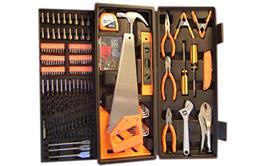Sifting through the thousands of Change Challenge contributions, some overall themes emerged. We have distilled them into five fundamental questions any organisation operating in the NHS needs to ask itself in order to change effectively

Upon its launch, the Change Challenge had a brave task: to collectively bring out the wisdom of the public to help any individual achieve change more effectively within the NHS.
The need for leaders to listen to ideas from staff and patients was repeatedly drawn on in almost all of the 13,000 plus contributions submitted anonymously by the NHS workforce.
‘Leaders need to listen to ideas from staff’
“The more senior you are, the more one has to listen to grassroots suggestions including those from service users and their families,” said one contributor.
Those submitting solutions to the Change Challenge guide decided that small pots of money could be set aside for the implementation of simple ideas proposed by staff and patients.
The Change Challenge interactive guide
Space to innovate
The crowd identified that a physical space to innovate is needed as well as a virtual environment.
‘Both physical and virtual space to innovate is needed’
As the world becomes increasingly social media driven, leaders in the NHS should embrace this by utilising online platforms to collate staff suggestions.
Campaign contributors said such an approach would foster thought diversity and “can bring down the barriers between staff and executive teams”.
Training framework
A national framework for the training and development of general managers within the NHS should also be set up to support managers in their roles and ensure all are working to the same standards suggested the crowd.
Contributors to our guide said the framework “will ensure managers nationally are held to the same standards, which in turn will lead to a national reduction in over controlling leadership practices”.
Improvement teams
The idea of an in-house floating team was also considered. These teams could be tasked with identifying areas where improvements needed to be made.
They would help unify staff across various departments and limit the repetition of failed programmes.
‘Frontline staff are in an ideal position to help identify training or resource needs’
“Being hands on frontline staff, they would be in an ideal position to help identify training or resource needs,” one contributor proposed.
The result of the thousands of contributions to the Change Challenge identifies 10 barriers to change, 11 building blocks fundamental to any change initiative and 15 developed solutions to these barriers and building blocks.
While the solutions within this guide are by no means comprehensive and definitive – some are merely small ideas that need further refinement – they can help steer change efforts in the right direction.
Several of the ideas can be easily implemented within days, months and the immediate future.
What could I be doing?
Looking at the overall themes of contributions made by the crowd, there are five fundamental questions any organisation operating in the NHS needs to ask itself in order to change effectively.
- Am I adapting fast enough to make my organisation sustainable?
- Am I using the full expertise of my staff and external teams to drive up quality?
- Am I encouraging the right type of culture amongst my teams – do they feel they need to blame fellow colleagues in order to survive?
- Are departments working together – are there rigid structures inside my organisation preventing collaboration?
- Am I training staff and supporting them not just for their immediate roles but for a future NHS?
The Change Challenge crowd
Any member of the public or NHS staff could take part in the Change Challenge by logging onto the free platform
- 3,595 people took part in the campaign
- People logged in from 45 different countries
- 13,895 contributions were submitted
Change Challenge interactive guide now available

How to achieve bottom-up change in the NHS
- 1
- 2
 Currently
reading
Currently
reading
Change Challenge solutions explained
- 4
- 5
- 6


































No comments yet